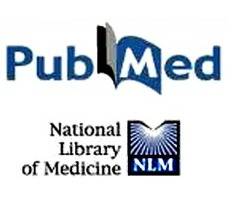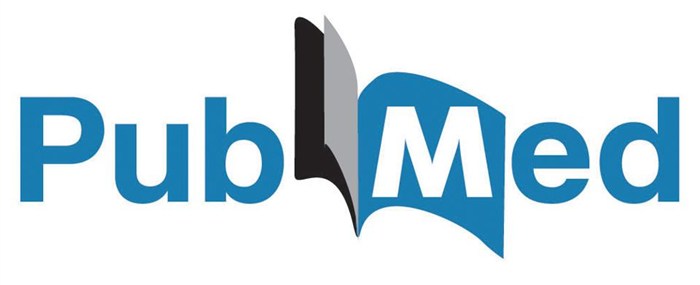
Published online Dec 17, 2013. doi: 10.1159/000356512
Cannabis finds its way into treatment of Crohn’s disease
 In ancient medicine, Cannabis has been widely used to cure disturbances and inflammation of the bowel. A recent clinical study now shows that the medicinal plant Cannabis sativa has kept its expectancies proving to be highly efficient in cases of inflammatory bowel diseases (IBD). In a prospective placebo-controled study, Naftali and coworkers (Clin. Gastroenterol. Hepatol. 11,1276-1280. e1., 2013) have shown what has been largely anticipated from anectodal reports, that Cannabis produces significant clinical benefits in patients with Crohn’s disease. The mechanisms involved are not clear yet but most likely include peripheral actions on cannabinoid receptors 1 and 2, and may also include central actions.
In ancient medicine, Cannabis has been widely used to cure disturbances and inflammation of the bowel. A recent clinical study now shows that the medicinal plant Cannabis sativa has kept its expectancies proving to be highly efficient in cases of inflammatory bowel diseases (IBD). In a prospective placebo-controled study, Naftali and coworkers (Clin. Gastroenterol. Hepatol. 11,1276-1280. e1., 2013) have shown what has been largely anticipated from anectodal reports, that Cannabis produces significant clinical benefits in patients with Crohn’s disease. The mechanisms involved are not clear yet but most likely include peripheral actions on cannabinoid receptors 1 and 2, and may also include central actions.
The past ten years have seen a constant rise in publications dealing with the antiinflammatory effects of cannabinoids and the potential underlying mechanisms. Preclinical data on the ameliorationg effect of synthetic and natural cannabinoids in animal models mimicking features of inflammatory bowel disease (IBD) have been rapidly evolving. The reasonable idea that cannabinoids would be also beneficial in IBD patients was mainly based on results from experiments in cannabinoid receptor knock out mice and on data using cannabinoid receptor agonists and antagonists. Following a previous publication of a retrospective, observational study by Naftali et al. [1] and a questionaire performed by a different group in patients with ulcerative colitis (UC) and Crohn’s disease (CD) [2], both revealing symptom relief and improvement after use of Cannabis, Naftali et al. have now presented a placebo controled prospective study in 21 patients with CD unresponsive to standard IBD treatment [3]. Although the primary endpoint of induction of remission was statistically not achieved, they were able to demonstrate that an 8-week treatment with THC-rich Cannabis caused a decrease of the Crohn’s disease activity index (CDAI) in 90% of patients without producing significant side effects. The authors rightfully concluded that a larger patient group is warranted for future studies.
This is the first clinical trial on the effect of Cannabis in IBD and it confirms what has been suggested for a long time from experimental studies, namely that cannabinoids may provide antiinflammatory effects and symptomatic benefit in patients with IBD. The physiological fundament for the beneficial effects of Cannabis has been established a while ago and unraveled since then. The discovery of cannabinoid receptors and endogenous molecules activating these receptors led to the description of a coordinated network that is inherent to the mammalian organism, the so-called endocannabinoid system. This system consists of the canonical CB receptors (cannabinoid receptor 1 and 2; CB1, CB2), their endogeneous ligands anandamide and 2-arachidonoyl glycerol (2-AG), also called endocannabinoids, and their synthesizing and degrading enzymes. What capsaicin, the pungent ingredient of chili, is for vanilloid receptors and morphin for opioid receptors, is tetrahydrocannabinol (THC), the psychodelic ingredient of Cannabis, for cannabinoid (CB) receptors: the predominant herbal ligand. Thus, THC mimics the actions of anandamide and 2-AG.
The wall of the gastrointestinal tract houses all components of the endocannabinoid system. Recent data show that these components are differentially expressed in human IBD indicating a regulatory role in the disease progress [4]. While anandamide and its synthesizing enzyme display lower levels in UC, expression of CB2 receptors and of enzymes responsible for synthesis and degradation of 2-AG were increased [5]. The findings indicate that the CB2 receptor plays a key role in the ameliorating effect of cannabinoids in IBD. The precise mechanism as to how cannabinoids contribute to improvement of IBD, however, is not clear but by use of experimental models of intestinal inflammation we are able to define a picture on how and at which targets cannabinoids cause improvement of inflammation.
CB1 and CB2 receptors are located at the colonic epithelium and a protective effect of THC via epithelial permeability is conceivable (Fig. 1). Therefore, cannabinoids could enhance epithelial wound closure in the colon [6]. One of the prominent features of cannabinoids in experimental intestinal inflammation are their effects on immunocytes which mainly express CB2 receptors. Upon CB2 activation, T-cells undergo apoptosis and decreased proliferation in colitis [7]. Additionally, activation of CB2 diminishes the recruitment of neutrophils, T-cells and macrophages to the inflamed colon [7]. CB receptors are also found in the enteric nervous system (ENS), which controls gut motility and secretion [8]. CB1 receptors present in the ENS represent a break that protects the ENS from hyperstimulation, a situation easily caused by overexpression of inflammatory mediators that activate the ENS during IBD. Activation of CB receptors by THC, therefore, may reduce hypermotility associated with the inflammation of the gut [9]. The reduction of hypermotility may consequently alleviate diarrhea producing beneficial effects for the patient.

It should be emphasized that the brain is the major site of CB1 expression and that presence of CB2 has been also detected in the brainstem [8]. The use of Cannabis in improving inflammation could therefore well include central effects, such as a reduction in pain sensation and relief of nausea and feeling of unpleasantness. One report suggests that a full antiinflammatory response of cannabinoids in gut inflammation includes the central nervous system since a peripherally restricted CB1/CB2 receptor agonist was either not effective or too weak to improve colitis, depending on the exprimental model used [10].
In their prospective study, Naftali et al. used THC-free Cannabis as placebo with no other cannabinoids present [3]. However, we should consider that also other ingredients of Cannabis, such as cannabidiol, cannabigerol, and tetrahydrocannabivarine (THCV), all of them non-psychotropic components of Cannabis, have proven antiinflammatory effects in experimental intestinal inflammation [9]. Their actions partly involve non-CB receptor mechanisms via, for instance, peroxisome proliferator-activated receptors (PPAR) and transient receptor potential cation channels subfamily V receptors (TRPV) and should be regarded as additive beneficial effects of Cannabis in the improvement of colitis in addition to THC-mediated effects.
In summary, in agreement with the ancient use of Cannabis in intestinal disturbances and one decade of animal research, Cannabis was shown in a clinical trial to reduce symptoms in patients with CD. This elegant translation should be followed by larger trials confirming these results and by trials establishing the involved mechanisms to open a promising direction for future treatment of IBD.
Acknowledgements
RS is supported by grants from the Austrian Science Fund (FWF P 22771 and P 25633). MS is supported by the Deutsche Forschungsgemeinschaft (DFG).
References


